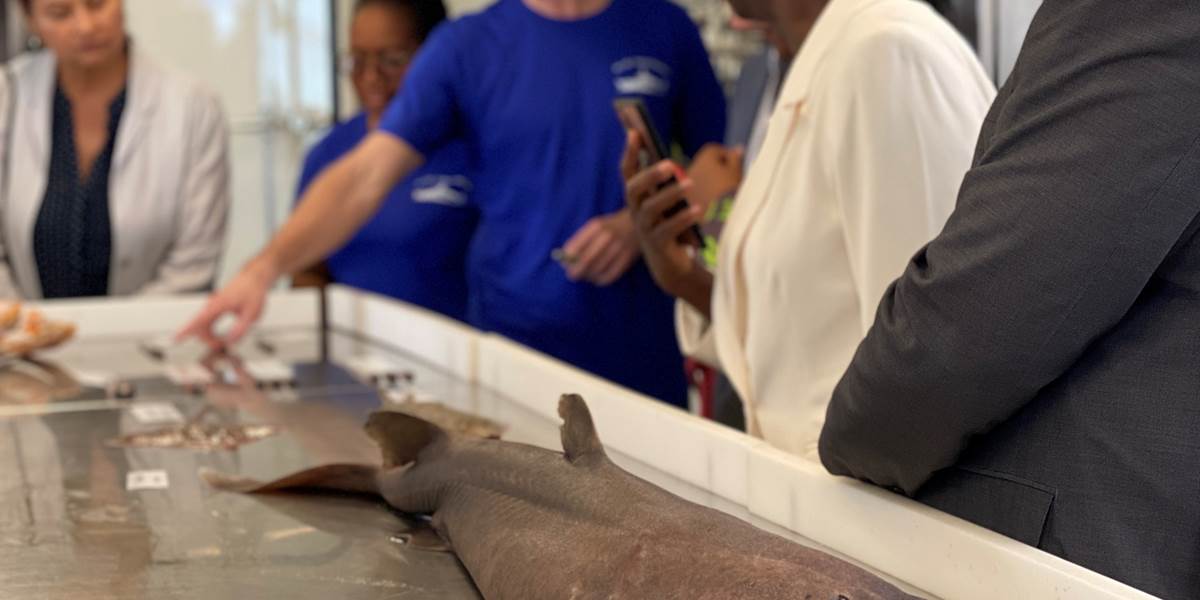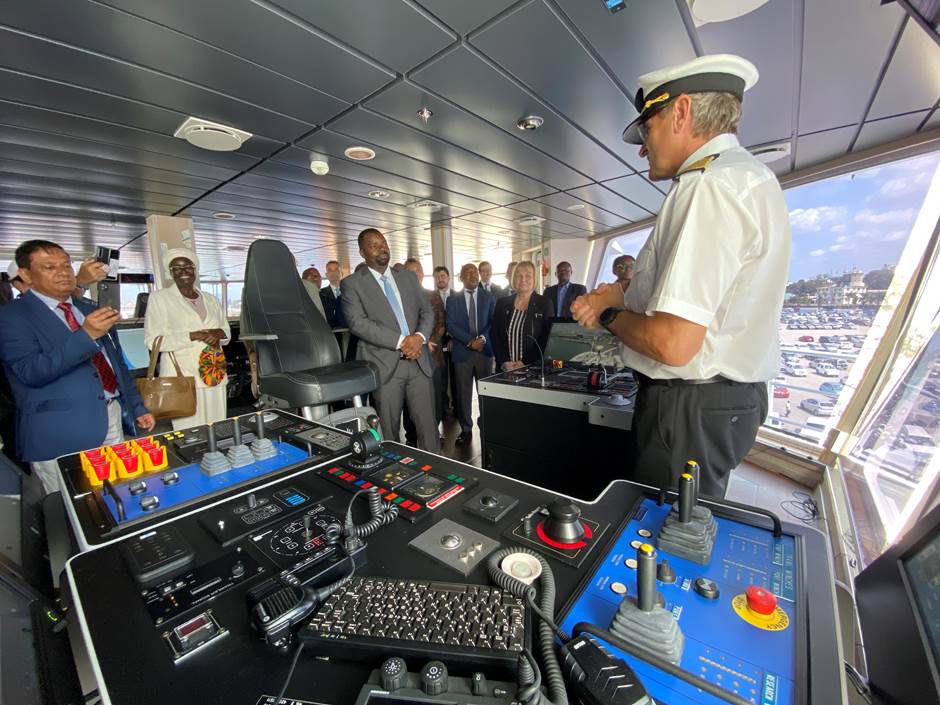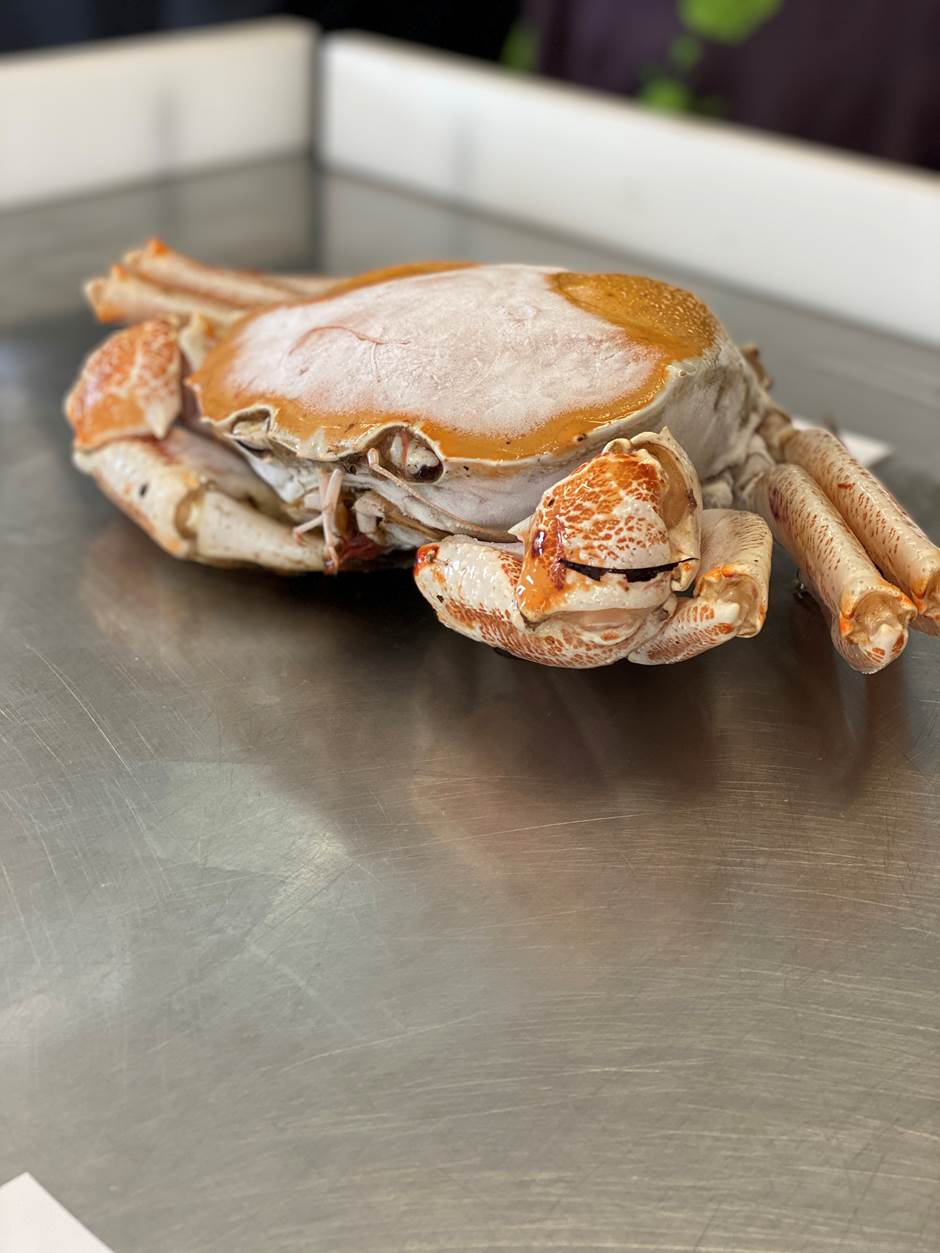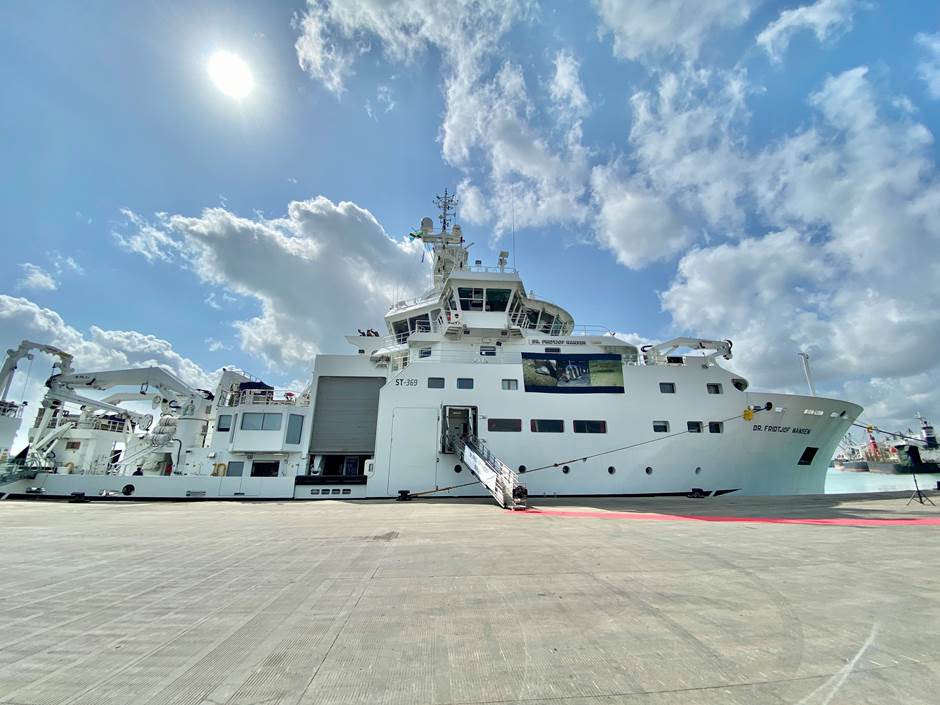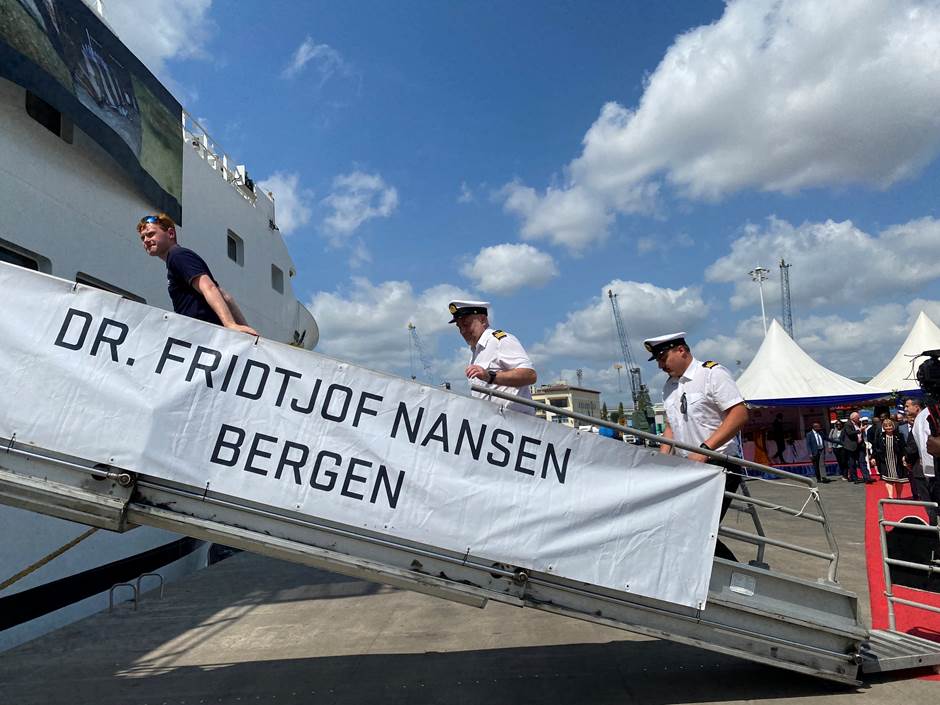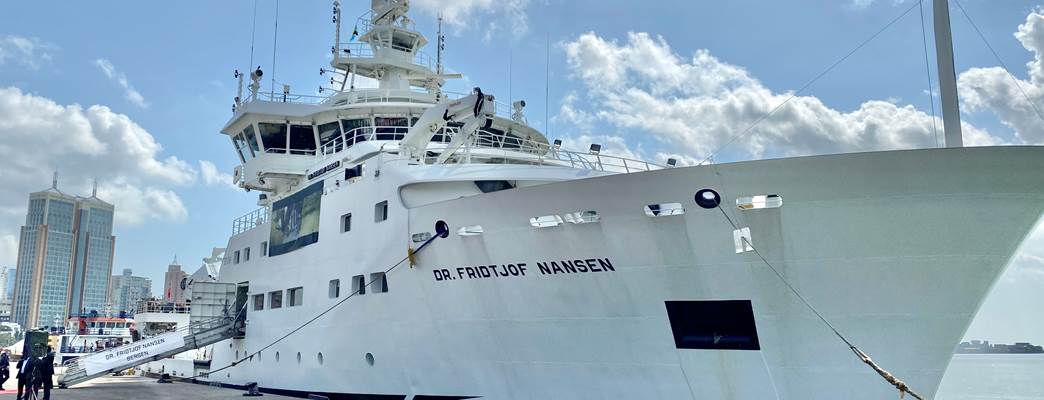Tanzania welcomed the research vessel Dr. Fridtjof Nansen as it arrived at the port of Dar es Salaam after having completed the the 1st leg of the research survey in East Africa in particular Mozambique and part of Tanzania. The survey in Tanzania will continue after the port call event and end on 25 July 2023. On this occasion, the Ministry of Livestock and Fisheries of the Republic of Tanzania, the Royal Norwegian Embassy in Tanzania, and the Food and Agriculture Organization of the United Nations (FAO) invited government officials, members of the diplomatic community, and representatives from the public and private sectors to a special event on the dockside and to embark on a guided tour aboard the vessel. The purpose of the event was to raise awareness on ocean issues and the work of the EAF-Nansen Programme and to provide insights into the unique research facilities that the research vessel Dr. Fridtjof Nansen has served the Nansen Programme with for nearly five decades. The current research vessel, the third in a series, was constructed in 2016 and is equipped with state-of-the-art scientific instruments.
"As a partner country of the EAF-Nansen Programme, Tanzania has derived numerous benefits from various national and regional research surveys conducted by the Dr. Fridtjof Nansen over the years," stated Honorable Abdallah Hamis Ulega, the Minister of Livestock and Fisheries of Tanzania, during the event. He further emphasized, "The research, data, and information obtained from these surveys have significantly enhanced our understanding of the ocean ecosystems, enabling us to make well-informed decisions regarding the sustainable management of our fisheries."
The R/V Dr. Fridtjof Nansen is an essential component and a significant tool within the EAF-Nansen Programme, which is committed to enhancing the capacities of fisheries institutions, advancing fisheries management, and bolstering scientific knowledge pertaining to marine resources and ecosystems. Regional and country-specific initiatives receive support with the objective of attaining food and nutrition security through sustainable fisheries management systems.
"We recognize the importance of supporting sustainable fisheries in the country and are committed to working hand in hand with the government, local communities, and other partners to achieve this goal," stated Dr. Nyabenyi Tito Tipo, the FAO Representative in Tanzania. She added, "In many countries, the data and information generated by the research vessel are the only reliable assessment data on fishery resources. The data collected during the research surveys are a national heritage, and the results represent a vital tool for the management of the fisheries sector."
Owned by the Norwegian Agency for Development Cooperation (Norad), operated by the Norwegian Institute of Marine Research (IMR), and sailing under the UN flag through an agreement with FAO, the Dr. Fridtjof Nansen serves as a platform for international cooperation among the collaborating agencies, member countries, and partner organizations of the EAF-Nansen Programme.
The Ambassador of Norway to Tanzania, H.E. Elisabeth Jacobsen, emphasized the importance of cooperation in enhancing the understanding of the ocean and its resources. "By working together, we can build productive and thriving marine and maritime industries, which we know contribute to economic growth and development," she stated.
This port call event in Dar es Salaam symbolizes the spirit of collaboration and dedication towards a shared mission of sustainable fisheries and marine research. The ongoing ecosystem survey in Tanzania with the Dr. Fridtjof Nansen commenced on June 28, 2023. From July 13 to July 25, the vessel will continue the research survey, focusing on studying and collecting samples to enhance our understanding of the diversity and distribution of fishery resources, the environment, and pollution in the waters off the United Republic of Tanzania. In this survey, 12 scientists from various Tanzanian institutions including TAFIRI, ZAFIRI, 3 from Mozambique, 1 from Kenya, and 1 from Namibia, in addition to IMR and FAO scientists, work together across borders and disciplines to address pressing issues such as overfishing, habitat destruction, pollution, and climate change.
"The Nansen Programme, through the Dr. Fridtjof Nansen has been instrumental in building the capacity of our scientists and researchers. Through training programs, workshops, and joint research projects, we have been able to develop a new generation of experts equipped with the skills and knowledge needed to address the complex challenges facing our oceans," stated Dr. Ismael Kimirei, General Director of TAFIRI.
Dr. Zakaria Khamis, General Director of ZAFIRI, further emphasized, "The challenges we confront are enormous – overfishing, climate change, pollution, and habitat destruction pose significant threats to the integrity of our marine ecosystems. These challenges can only be effectively addressed through comprehensive collaborative efforts, both within our nation and through international cooperation."
The EAF-Nansen Programme is a longstanding partnership between the FAO and Norway, with its origins dating back to mid-70’s. Over the years, the Programme has collaborated with 58 countries across Africa, Asia, and South America, providing assistance in the field of fisheries research and management.
The current phase of the Nansen Programme is set to conclude in 2023 and plans are already underway for the future. The next phase (2024-2028) will continue to contribute to the attainment of the Sustainable Development Goals and collaborate with ongoing initiatives such as the UN Decade of Ocean Science for Sustainable Development.
For more information:
- Programme EAF-Nansen (website)
- Fishery and oceanographic research vessel the R/V Dr Fridtjof Nansen (brochure)
- EAF-Nansen Programme – supporting the application of the ecosystem approach to fisheries management (video)
- EAF-Nansen Programme – Endorsed Ocean Decade Action (website and Fact sheet)
- Fisheries and Aquaculture Division (FAO) (website)
- Norway and FAO launch unique, state-of-the art oceanic research ship (FAO article)
Media contact :
Alice MARO, Communication Consultant, FAO Tanzania
Alice.Maro@fao.org
